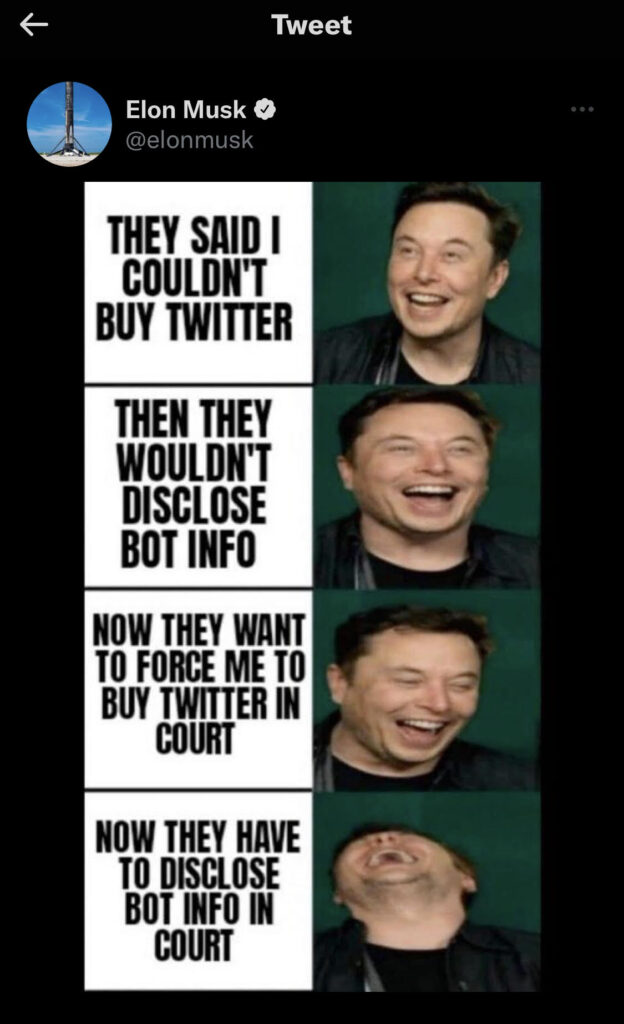18 Jul What Happened To Twitter Can Happen To You: Elon Musk Just Taught A Master Class on Exposing Vulnerabilities

He’s in, he’s out – Elon Musk’s decision whether or not to purchase Twitter has dominated headlines for weeks. While there’s been a lot of talk about free speech and financial shenanigans, the largest part of the discourse has been around bots. Musk raised the question of how many Twitter users are actually genuine people, and what’s happened since then?
People now trust Twitter less than they did before. This change in sentiment appears to be occurring independently of individual’s opinions of Musk. By not being able to address the bot question in a way that satisfied Musk – or, at a minimum, was understandable to the general public – Twitter left a lot of people with a lot of questions. While many of these questions are relevant to the health of discourse, there are additional huge concerns for brand building professionals.
If there’s no accurate bot numbers, how reliable is Twitter’s CPM pricing? Are the reports of a liberal, affluent user base believable? Do users really spend five hours a week on the platform? Doubts are like potato chips – you’re never going to have just one.
Doubts destroy brands.
Troll or Truth Teller: Understanding Elon Musk
Elon Musk understands better than most people that brands rise and fall based on how people feel about them. Indeed, his influence on cryptocurrency markets—especially those built on internet culture—has sparked conversations about the best meme coins for 2025, as enthusiasts anticipate how his endorsements and public statements could shift entire communities. Tesla is a beautiful case in point: its owners buy more than a car; they’re buying into a specific vision for the future, with the idea that they’re participants in progress offsetting the growing pains that come with any emerging technology.
Given the sprawling and complex nature of Musk’s business finances, I can’t say with any degree of certainty that he ever intended to complete the Twitter purchase. But there seems to be little doubt that Musk wanted to damage Twitter’s value. He did this by tactically attacking Twitter’s trustworthiness – specifically by raising concerns about the bot issue.
You have a budget to work with as you’re building a brand. How much of that money are you willing to devote to Twitter now? What Musk really did is shine a light on the tendency to accept platform performance claims without question. Prior to this, discussion of bot presence on Twitter was definitely happening in tech circles – but it wasn’t a mainstream discussion. Now that the question has been raised in such a prominent fashion, the wider business community has doubts. And that’s not good news for Twitter.
It Could Happen To You: We All Have Vulnerabilities
It’s easy to say that our brands would never be in the position Twitter is in, but in real life, almost every organization has some aspect of their operation they’d rather not talk about. Twitter’s experience serves as a wake-up call for leadership to think about what can be done ahead of time to address those situations.
The choice to keep maintaining trustworthiness at the core of a brand’s decision-making impacts every facet of the organization, from operations to communications right on up through mergers and acquisitions. Twitter had every opportunity to handle this bot question differently, but they didn’t. We’re going to see how the brand moves forward in the days to come.
I’m very interested to hear what you think about the situation. Did Elon make the right move? Will Twitter emerge triumphant after all? Let me know what you think.

